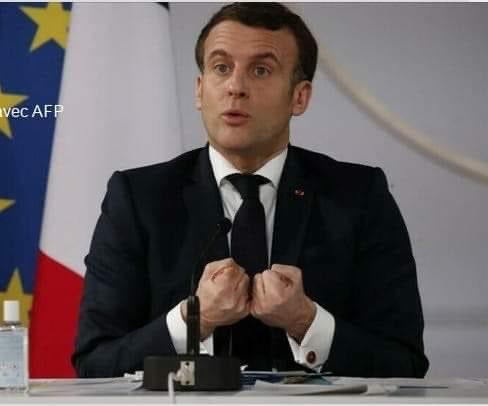French President Emmanuel Macron has announced that France will formally recognise a Palestinian state at the United Nations General Assembly in September—a move he described as part of his country’s historic commitment to peace in the Middle East.
Macron made the declaration public on Thursday via a letter addressed to Palestinian Authority President Mahmoud Abbas, which was later shared on the social media platform X.
“True to its historic commitment to a just and lasting peace in the Middle East, I have decided that France will recognise the state of Palestine,” Macron wrote. “I will make this solemn announcement at the United Nations General Assembly next September.”
France, home to Europe’s largest Jewish and Muslim populations, would become the first major Western power to take such a step, potentially shifting the momentum in a global movement previously driven by smaller countries that are often more critical of Israel’s policies.
The French leader’s decision sparked swift backlash from both Israel and the United States.
Israeli Prime Minister Benjamin Netanyahu condemned the move, warning it would embolden extremist groups. “A Palestinian state in these conditions would be a launch pad to annihilate Israel—not to live in peace beside it,” Netanyahu said. “Let’s be clear: the Palestinians do not seek a state alongside Israel; they seek a state instead of Israel.”
Israel’s Defence Minister Israel Katz, went further, calling the move “a disgrace and a surrender to terrorism,” and warned that Israel would not allow the emergence of what he called a “Palestinian entity” that compromises its national security.
U.S. Secretary of State Marco Rubio also denounced Macron’s announcement, describing it as a “reckless decision” that plays into the hands of Hamas. “This only sets back efforts for peace and is a slap in the face to the victims of the October 7th attack,” Rubio wrote on X.
Canada joined in urging Israel to re-engage with diplomatic efforts. Prime Minister Mark Carney condemned what he called Israel’s failure to mitigate the worsening humanitarian crisis in Gaza and reaffirmed Canada’s support for a two-state solution. He also accused Israel of breaching international law by blocking Canadian-funded humanitarian aid to the region.
“Canada calls on all sides to negotiate an immediate ceasefire in good faith,” Carney said, while reiterating calls for Hamas to release hostages and for Israel to respect the territorial integrity of the West Bank and Gaza.
Washington has consistently expressed opposition to any unilateral recognition of Palestinian statehood. A diplomatic cable from June warned such moves could conflict with U.S. foreign policy and carry consequences. Around the same time, U.S. Ambassador to Israel, Mike Huckabee, questioned whether a Palestinian state remained part of America’s official agenda.
Former President Donald Trump had previously floated the idea of a U.S. takeover of Gaza—an idea widely condemned as ethnic cleansing by international bodies, human rights groups, and regional governments.
Macron’s administration had reportedly been weighing the recognition of a Palestinian state for months as part of a broader strategy to preserve the two-state solution. France and Saudi Arabia were scheduled to co-host a United Nations conference in June focused on laying out a roadmap for Palestinian statehood while ensuring Israeli security. However, the event was postponed due to the outbreak of conflict between Israel and Iran and the resulting airspace restrictions that complicated regional attendance.
The conference has since been rescheduled as a ministerial-level meeting on July 28–29, with a follow-up event involving heads of state expected during the UN General Assembly in September, where Macron plans to make his formal announcement.
French diplomats say the timing of Macron’s statement is strategic, intended to galvanise momentum and coordinate efforts with other countries considering recognition or hesitating due to political sensitivities. Approximately 40 foreign ministers are expected to attend the upcoming conference in New York.
Meanwhile, Israel has been lobbying against Macron’s initiative, with some officials warning of diplomatic consequences—including a potential reduction in intelligence sharing and obstacles to French-led regional initiatives. Some have even raised the spectre of annexing parts of the West Bank in retaliation.
In Gaza, where Israel continues its military campaign following the deadly Hamas attack in October 2023, Palestinian officials welcomed France’s decision.
Palestinian Authority Vice President Hussein Al Sheikh praised Macron’s move as a reaffirmation of France’s commitment to international law and Palestinian self-determination. “This is a significant step towards our legitimate right to establish an independent state,” he said on X.
The debate over Palestinian statehood continues to divide global opinion, but Macron’s announcement signals a renewed push from Paris to place the issue at the heart of the international agenda in the months ahead.
Reuters


